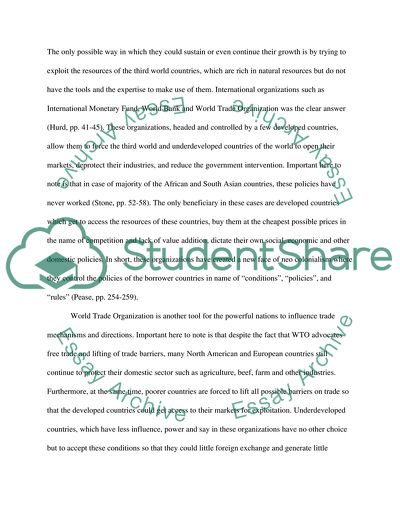Cite this document
(“Global Organizations and Nation States Essay Example | Topics and Well Written Essays - 1000 words”, n.d.)
Global Organizations and Nation States Essay Example | Topics and Well Written Essays - 1000 words. Retrieved from https://studentshare.org/marketing/1577934-to-what-extent-do-organizations-like-the-imf-wto-and-world-bank-challenge-the-nation-states-ability-to-shape-domestic-economic-and-social-policy
Global Organizations and Nation States Essay Example | Topics and Well Written Essays - 1000 words. Retrieved from https://studentshare.org/marketing/1577934-to-what-extent-do-organizations-like-the-imf-wto-and-world-bank-challenge-the-nation-states-ability-to-shape-domestic-economic-and-social-policy
(Global Organizations and Nation States Essay Example | Topics and Well Written Essays - 1000 Words)
Global Organizations and Nation States Essay Example | Topics and Well Written Essays - 1000 Words. https://studentshare.org/marketing/1577934-to-what-extent-do-organizations-like-the-imf-wto-and-world-bank-challenge-the-nation-states-ability-to-shape-domestic-economic-and-social-policy.
Global Organizations and Nation States Essay Example | Topics and Well Written Essays - 1000 Words. https://studentshare.org/marketing/1577934-to-what-extent-do-organizations-like-the-imf-wto-and-world-bank-challenge-the-nation-states-ability-to-shape-domestic-economic-and-social-policy.
“Global Organizations and Nation States Essay Example | Topics and Well Written Essays - 1000 Words”, n.d. https://studentshare.org/marketing/1577934-to-what-extent-do-organizations-like-the-imf-wto-and-world-bank-challenge-the-nation-states-ability-to-shape-domestic-economic-and-social-policy.


